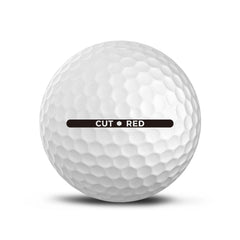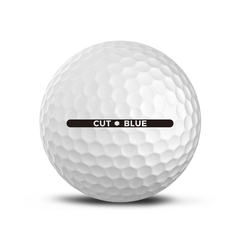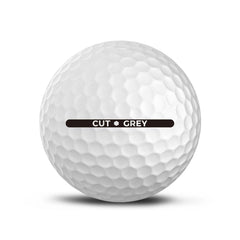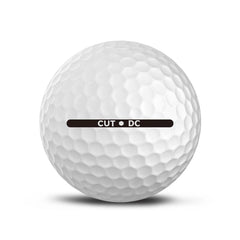Underdogs: Smaller Golf Ball Companies Take On the Big Boys
James Pendleton and Sam Uisprapassorn love golf.
Like a lot of golfers, what they don’t love is paying an exorbitant amount of money for golf balls. Sometimes buying a dozen high-end, brand-name balls can cost more than the round they’re playing. Golf’s most popular ball – a dozen Pro-V1/Pro-V1x balls - can cost anywhere between $40-$60 depending on what generation and where you buy them.
Uisprapassorn, a 16 handicap, said he grew tired of throwing money away every time he lost a ball in a hazard or a pond. “I’m an avid golfer no different than the people reading the article,” he said. “I’m tired of losing $3 to $4 at a time.”
Both men have thrown their hat in the ring in one of golf’s most confusing and competitive markets – selling golf balls. In 2016, Uisprapassorn launched Cut Golf Co. from southern California. A year later, Pendleton founded the Free Balls Club in Utah. Their business models and brands are quite different from one another, but there is one thing they share: The belief that good golf balls can and should be more affordable.
“The reason there is so many companies (selling balls), the golf market is tired of how expensive golf balls are,” Pendleton said. “It has opened up a secondary market. Golfers don’t want to spend $60 in a pro shop for balls. It is a crowded field … People are tired of paying for big names.”
Playing the disruptor isn’t easy, but both men believe in their products and have been encouraged by their growth over a short period of time. Smaller companies like Vice and Snell have made inroads and developed loyal followings in recent years, so why can’t they?
Cut Golf Co. History
Uisprapassorn used Facebook and Instagram to launch Cut. Its stable of balls have been a work in progress the past three years.
“We are constantly tinkering with the product,” Uisprapassorn said.
Although it is mostly a direct-to-consumer brand, Cut Golf Co. has a key partnership with Worldwide Golf Shops. Worldwide Golf Shops is the parent company to Roger Dunn Golf Shops, Edwin Watts Golf Shops, Golfer's Warehouse, The Golf Mart, Las Vegas Golf Superstore and others - totaling more than 80 stores in 20 states. “We have had significant growth since 2017, high double-digit growth,” Uisprapassorn added.
To Uisprapassorn, many golf ball brands are “hype and hoopla.” Cut’s marketing and packaging is counter-cultural and almost cynical in nature. Uisprapassorn vowed he wouldn't use traditional catch phrases like “more spin” or "less spin." Cut’s tagline is “Finally, a golf ball for the people.”
A dozen of most of the styles Cut offers costs roughly $20 a dozen, but its Cut Red balls are $9.95 and the high-end Cut Blue DC for lower handicaps is $29.95.
“I do believe that players should be brand agnostic,” Uisprapassorn said. “Take [any ball] out, hit from 80 yards and in, and that’s where the true test should be. If you are on the fence [about our ball], try out a few in our line of golf balls. We understand the golf ball segment has to be one of the most fickle in the industry. There is a place for us but also for anybody else.”






